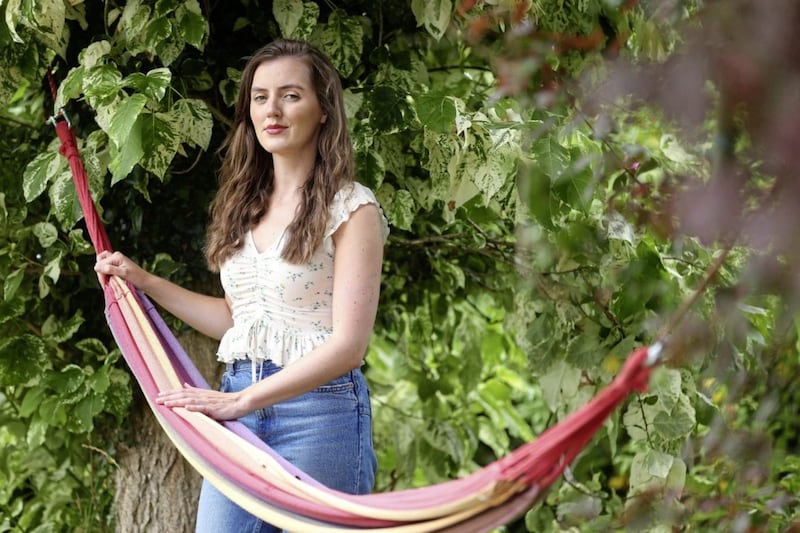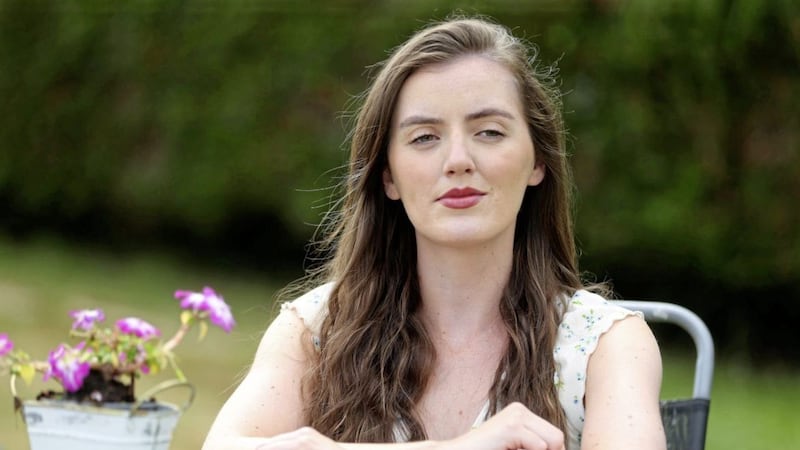WEEKS before the pandemic hit, Co Down nurse Christina Watters was ballroom dancing three nights a week practising for a Strictly fundraiser while working full-time.
The 27-year-old had started a demanding new job nursing acutely ill patients in their homes after spending five years at Newry's Daisy Hill A&E department.
As the only nurse in her family, the Banbridge woman said it was something she'd always wanted to do as it allowed her to help people when they're at "their weakest and most vulnerable".
For the past seven months however, the hiking fanatic has been virtually housebound with her outings confined to short 10 minute morning walks "just to get fresh air".
Ms Watters is one of an estimated 21,000 people in Northern Ireland living with long Covid, a severely debilitating condition which has symptoms similar to coronavirus that leaves sufferers with chronic muscle pain and crippling fatigue.
The nurse, who lives at home with her parents, contracted the virus during the first wave last April.
"Myself and my dad felt unwell, we had sore throats and were feverish. Mine was more like a flu but dad's health really deteriorated and he was struggling to breathe. He doesn’t smoke and had no chronic lung conditions. He had a persistent temperature which I really struggled to get at bay," Ms Watters said.
"My symptoms got worse but I tried to ignore it as I was nursing him. My mum, who had recovered from ME, also got Covid but was okay. I just felt weak but powered on and took paracetamol."
Nervously returning to work after a fortnight, she faced a workload that had doubled due to Covid pressures.
"I left A&E in January and my new job entailed hospital care at home for the over-65s. When they’re at the point of needing a hospital admission, we step in and administer treatments such as anti-biotic fluids," she said.
"There was a lot of stress about the unknown at that time. We had many patients with Covid but we were able to keep them at home which was a massive thing, as if they’d gone into hospital they couldn’t have seen their family.
"We were learning on the job everyday because it was so new. It was scary but there was good team support."

The young nurse's condition began to deteriorate over the next six weeks as her energy levels dropped dramatically.
"My managers were very supportive and recommended that I take six weeks off work, which I did."
Returning in June, the Co Down woman worked through the second and third waves from autumn to December as her symptoms got worse as she developed severe abdominal pain.
She was "running on empty" and colleagues began telling her she didn't look well.
By Christmas Day, she sat at the dinner table to "pass herself" but went back to her bedroom as she was "barely able to lift her head".
Mentally, the condition began to take its toll.
"It's very frustrating. There is no rhyme or rhythm as to how the symptoms portray themselves. One day you may feel good and you do a bit more unaware of the toll it will take on you the next day," Ms Watters explained.
"So when it hits again, with the extreme fatigue, pains in your muscles, joints, chest as well as headaches and sleep disturbance, it becomes a vicious cycle. I could do very little.
"Fatigue is very different to tiredness, you can’t even speak. You can’t concentrate. The 'brain fog' you hear people talk about - I understand that now. I can’t really put my thoughts together. I can’t focus or even be around loud noise, which probably isn’t loud to someone else."
While the vaccine was rolled out to frontline healthcare staff last December, Ms Watters delayed getting it until April as she didn't feel well enough.
She went for a second jab last month and is "gradually getting stronger".
"I’m afraid to jinx it but I don’t feel as bad as I did at the beginning of the year. There’s still a bit of a way to go. But I am hopeful that now I’ve had both my jabs."
For now, she is missing a job she loves.
"I perceived my work as a purpose. Whenever I was working you felt as if you had something to get up in the morning for. So not having that at the moment has been really difficult.
"If I’m feeling good, I try to go for a 10 minute walk in the morning just to get fresh air. I do a lot of meditation.
"I’m trying to meet my friends again. But even just sitting chatting to them, I’m exhausted after it."
As health service staff battle rocketing Covid hospital admissions, Ms Watters said the opposition to vaccinations and dismissal of the virus is something she struggles to deal with.
She often "de-activates" her social media due to the amount of "shocking" misinformation on it.
"I think the mis-truths on social media are a massive problem for younger people. I find it quite upsetting that people are against vaccination and don’t believe Covid or long Covid is a serious thing," she added.
"Because my family have been through this first hand, I would encourage everyone who can get vaccinated to get vaccinated. I wouldn’t want anyone to experience what we have in the past year. You wouldn't wish it on your worst enemy."
Ms Watters hopes to return to nursing in the future and has embarked on a new Chest, Heart & Stroke zoom programme known as 'Taking Control'.
The north, unlike England, has no long Covid treatment clinics. Health minister Robin Swann announced last month that specialist services will be rolled out in October.
Ms Watters said recognition of the illness was a "comfort".
"I really do believe this has happened to me for a reason and I would love to give back in the future what I have learned through my experience. I would like to pursue something in relation to it."








